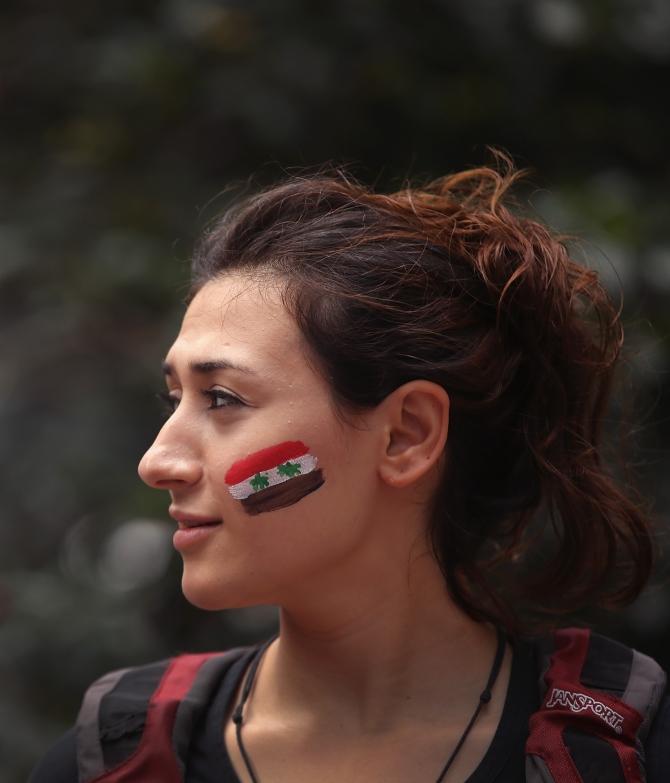
United States President Barack Obama has said the military strike against Syria can be put on hold if the Bashar al-Assad regime agrees to turns over the chemical weapons to the international community.
Obama, in separate interviews to six news channels on the issue of Syria on Sunday, also conceded he was not confident of getting votes form the Congress on the strike, but said he would take a final decision after talking to American people directly on Monday night.
"Absolutely, if, in fact, that happened," the president told the ABC News when asked if the military strike was on pause if Bashar al-Assad, the Syrian president, yields control of his chemical weapons to international authority.
"That's in our national security interest. If we can do that without a military strike, that is overwhelmingly my preference. And now the key is, can we see a sense of urgency?" Obama said.
…
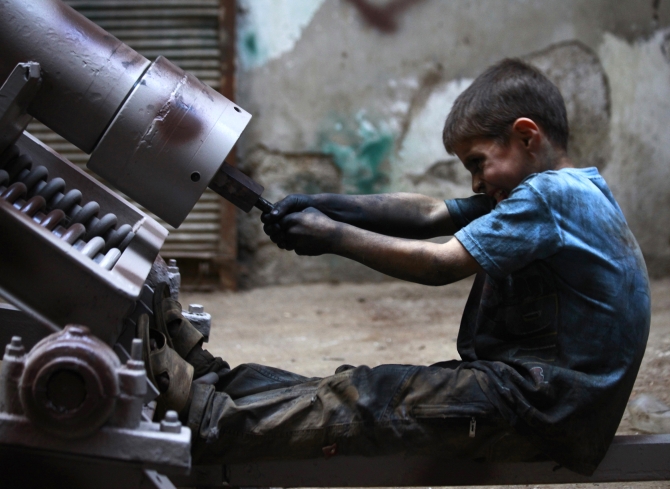
"I don't think that we would have gotten to this point unless we had maintained a credible possibility of a military strike, and I don't think now is the time for us to let up on that," Obama, said asserting that he wants to make sure that the norm against use of chemical weapons is maintained.
The US president also said he was not confident enough of getting Congressional support on the issue. "I wouldn't say I'm confident. I'm confident that the members of the Congress are taking this issue very seriously and they're doing their homework. And I appreciate that," Obama told the NBC news in another interview.
The president said he has not decided on going for the military strike without Congressional authorisation. Asserting that he always preferred for a diplomatic resolution to the Syrian crisis, Obama noted that the latest statements by Russia and the Syrian government represent a potentially positive development.
…
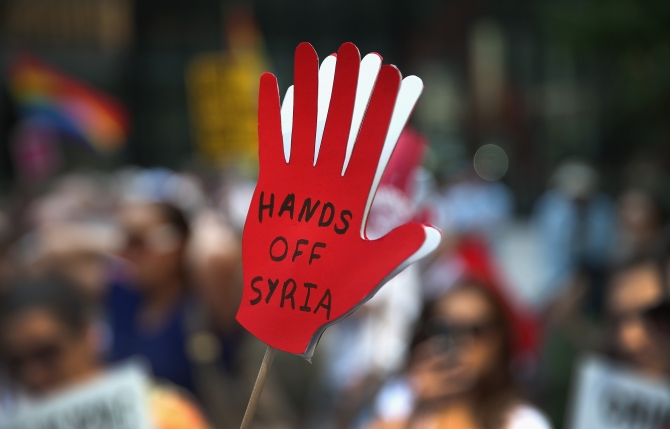
"Between the statements that we saw from the Russians, the statement from the Syrians, this represents a potentially positive development. And my preference consistently has been a diplomatic resolution to this problem," Obama told the NBC news channel.
"It's possible if it's real," Obama told the CNN when asked if the military strike could be averted if the Syrian chemical weapons were handed over to international control as suggested by US Secretary of State, John Kerry, and the Russians.
"I think it's certainly a positive development when the Russians and Syrians both make gestures toward dealing with these chemical weapons. This is what we've been asking for not just over the last week or the last month, but for the last couple of years... because these chemical weapons pose a significant threat to all nations, and to the US in particular," he said.
…
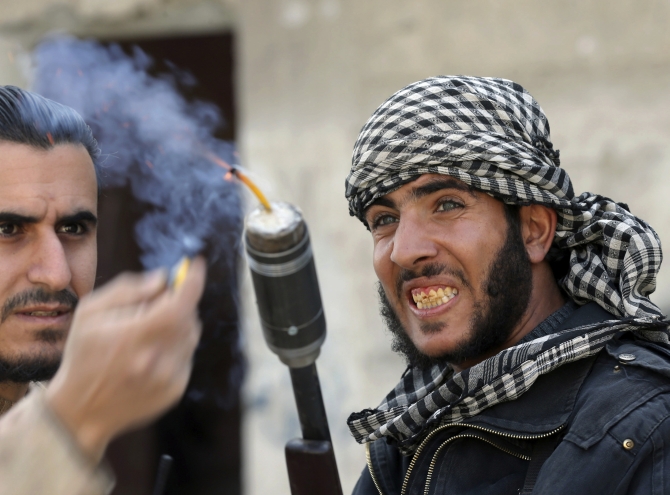
"So it is a potentially positive development. I have to say that it's unlikely that we would have arrived at that point where there were even public statements like that without a credible military threat to deal with the chemical weapons use inside of Syria," Obama said.
"But we're going to run this to ground. John Kerry and the rest of my national security team will engage with Russians and the international community to see can we arrive at something that is enforceable and serious," he said.
"One reason this may have a chance of success is that even Syria's allies, like Iran, detest chemical weapons. Iran, you know, unfortunately, was target of chemical weapons at the hands of Saddam Hussein during the Iraq-Iran war," he said.
"So we may be able to arrive at a consensus in which it doesn't solve the underlying problems of a civil war in Syria, but it does solve the problem that I am trying to focus on right now, which is, making sure that you don't have over 400 children guessed indiscriminately by these chemical weapons," said the US president.
…

Obama said he has not decided on going for military strike without Congressional authorisation. "I think it's fair to say I haven't decided. I am taking this vote in the Congress. What American people are saying very seriously, because if you ask somebody, you know, I read polls like everybody else, if you ask somebody, if you ask Michelle, do we want to be involved in another war, answer is no," he said.
"I recognise how important that debate is. And it's my belief that for me, the president, to act without consensus in a situation where there's not a direct imminent threat to the homeland or our interests around the world, that's not the kind of precedent that I want to set," Obama said.
"We're going to spend this week talking to members of the Congress, answering their questions. And I'm going to speak to the American people tomorrow night directly. I'll evaluate after that whether or not we feel strongly enough about this that we're willing to move forward," he said.
Obama said he does not regret taking the military strike issue to the Congress.
…
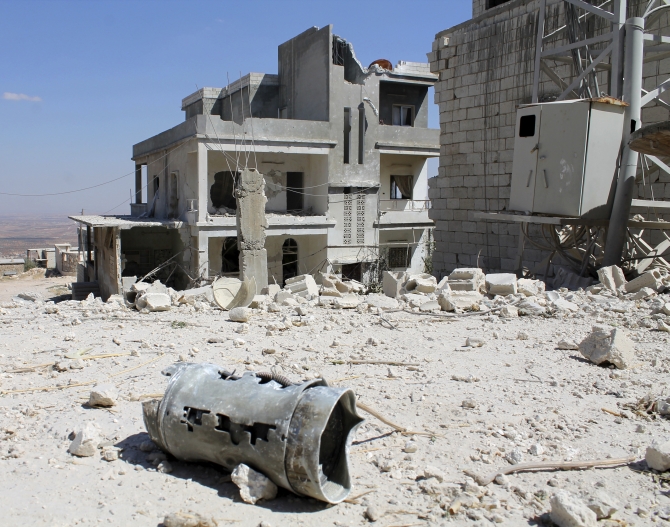
"Absolutely I do not because, I believe that every president has the authority to act on behalf of the national security interests of the country and that, under the War Powers Act, we have to consult with the Congress and inform them after actions are taken," he told the PBS news
"I'm glad we're having this debate. I don't think I'm going to convince, the overwhelming majority of the American people to take any kind of military action, but I believe I can make a very strong case in Congress as well as American people, about why we can't leave our children a world in which other children are being subjected to nerve gas," he said.
"That it is in our interest if we can take a limited step that makes a meaningful difference, it's worth it for us to do that," Obama added.
The president said he got elected to end wars, not to start them. "I, over the last four years, have done everything I could to limit our military footprint around the world, and to ramp up our diplomatic efforts. But there are times where, if the choice is do nothing or stand up to a terrible wrong that could lead to a more dangerous world down the road, then it's appropriate for us to take proportional measures," he said.
In another interview to Fox News, Obama said Congressional deliberations would take some time. "I am going to make sure that this does not change the calendar of debate in the Congress, but there was no expectation that the Congress would be finished with its deliberations over the next week or so.
I mean, clearly it's going to take more time, partly because the American people aren't convinced," he said.
The US president conceded that the American people are not persuaded as of now.
…
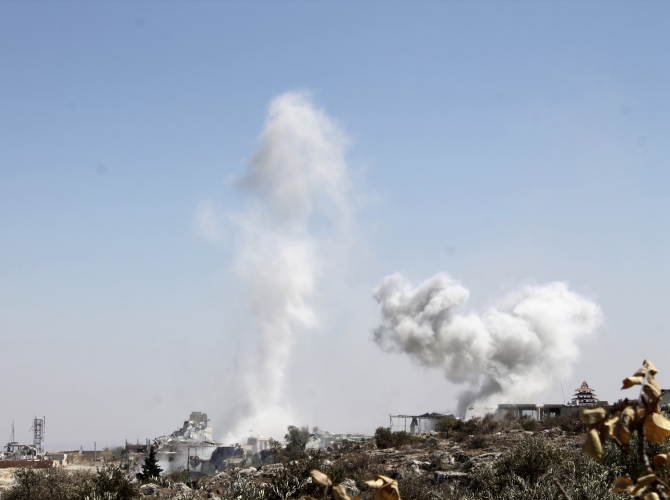
"Right now members of the Congress, who are just getting back, still have questions. So we're going to have time to have a good deliberation in Congress. We will pursue this diplomatic track," he said.
"I fervently hope that this can be resolved in a nonmilitary way. But I think it is important for us not to let, you know, the pedal off the metal when it comes to making sure that they understand we mean what we say about these international bans on chemical weapons," Obama said.
Obama also said the Assad regime does not have significant military capabilities relative to the US, but noted that his administration is taking all precautions before any military strike on Syria.
"I think you always have to take all precautions and recognise that any military action, even a limited one, is a significant piece of business. We have looked very carefully at all the possibilities," Obama told the PBS news. "It is important to recognise that Assad does not have significant military capabilities relative to us. He has significant capabilities relative to non-professionals, soldiers in the opposition," he said.
Obama said Assad has obviously significant capabilities relative to those women and children who were gassed, but not with respect to the US. "His allies Iran and Hezbollah though do possess (capabilities). They could carry out asymmetrical attacks against our embassies, for example, in the region," he said.
…
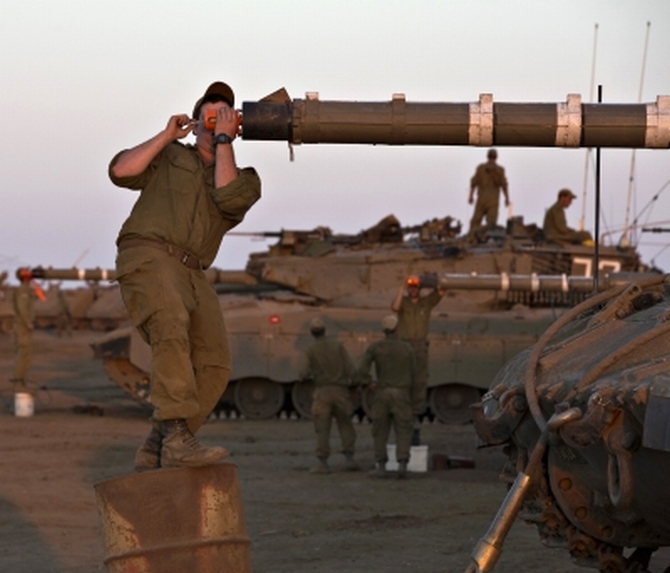
"But we don't actually think that they want to do something like that. Keep in mind that Iran was the country probably last subjected to large-scale chemical weapons use, by Saddam Hussein. So there's a real aversion to chemical weapons inside of Iran," he said.
"I don't think either Iran or Hezbollah thought what Assad did was a good idea. For us to take a limited, proportional, although significant strike on Assad's capabilities to degrade them, I don't think would prompt them to get involved. Still, the US has taken all precautions" he said.
"We don't go into anything without having thought through the various measures that are required," he said.
...